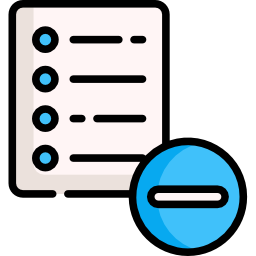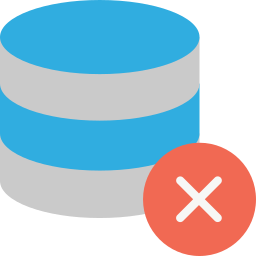Article withdrawal
Used only for articles that represent early versions of articles and sometimes contain errors or have been accidentally submitted twice. Occasionally, but less frequently, articles may constitute violations of professional codes of ethics, such as multiple shipments, misrepresentation of copyright, plagiarism, fraudulent use of data, and so on. Articles in the press (articles which have been accepted for publication but which have not been officially published and which do not yet contain the full volume / number / page information) and which contain errors or which are found to be they are accidental duplicates of other published articles, or are determined to violate our ethical guidelines for journal publication in the eyes of editors (such as multiple submissions, fictitious copyright claims, plagiarism, fraudulent use of data or other similar information), may be "withdrawn" from ISRDO. Withdrawn means that the content of the article (HTML and PDF) is deleted and replaced by an HTML page and that PDF simply states that the article has been removed in accordance with publication policy on the article in Withdrawing Press with a link to the current policy document.

Article Retraction
Errors serious enough to invalidate a paper's result and conclusions may require retraction. Scientific misconduct includes, but is not necessarily limited to data fabrication, data falsification including deceptive manipulation of images, and plagiarism. The integrity of research may also be compromised by an inappropriate methodology that could lead to retraction.
Sometimes an article needs to be completely removed from the body of research literature. This could be due to inadvertent errors made during the research process, gross ethical breaches, fabrication of data, large amounts of plagiarism, or other reasons. Such articles threaten the integrity of scientific records and need to be retracted. The Grassroots Institute follows the recommendations of the Committee on Publication Ethics (COPE) for retraction. Potential retractions are thoroughly investigated by the Editorial Office with the support of the Editorial Board and final approval by the Editor-in-Chief. Other persons and institutions will be consulted as necessary, including university authorities or experts in the field.
However, above situation requires individual assessment. When scientific misconduct is alleged, or concerns are otherwise raised about the conduct or integrity of work described in submitted or published papers, the Editors should initiate appropriate procedures detailed by such committees such as the Committee on Publication Ethics (COPE) and may choose to publish an expression of concern pending the outcomes of those procedures. If the procedures involve an investigation at the authors' institution, the Editors should seek to discover the outcome of that investigation, notify readers of the outcome if appropriate, and if the investigation proves scientific misconduct, publish a retraction of the article. There may be circumstances in which no misconduct is proven, but an exchange of letters to the Editors could be published to highlight matters of debate to readers.
The validity of previous work by the author of a fraudulent paper cannot be assumed. Editors may ask the author's institution to assure them of the validity of other work published in their journals, or they may retract it. If this is not done, Editors may choose to publish an announcement expressing concern that the validity of previously published work is uncertain.

Article Removal: Legal limitations
In an extremely limited number of cases, it may be necessary to delete an item from the online database. This will only happen if the article is clearly defamatory or violates the legal rights of others, or if the article is the subject of a court order, or if we have good reason to believe that it is will do, or if the article, if acted upon, could pose a serious health risk. Under these circumstances, the metadata (Title and Authors) will be preserved, but the text will be replaced by a screen indicating that the article has been deleted for legal reasons.

Article Replacement
In cases where the article could pose a serious health risk, the authors of the original article may wish to remove the defective original and replace it with a corrected version. In these circumstances, withdrawal procedures will be followed except that the removal notice from the database will publish a link to the corrected item and a history of the document.

Article Correction
Publication editors should consider correcting if:
- A small part of an otherwise reliable publication reports erroneous data or is misleading, especially if it results from an honest mistake.
- The list of authors or contributors is incorrect (for example, a deserving author has been omitted or a person who does not meet the author's criteria has been included).
Corrections to peer-reviewed content fall into one of four categories:
